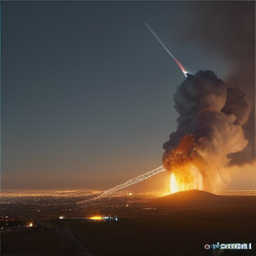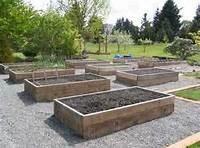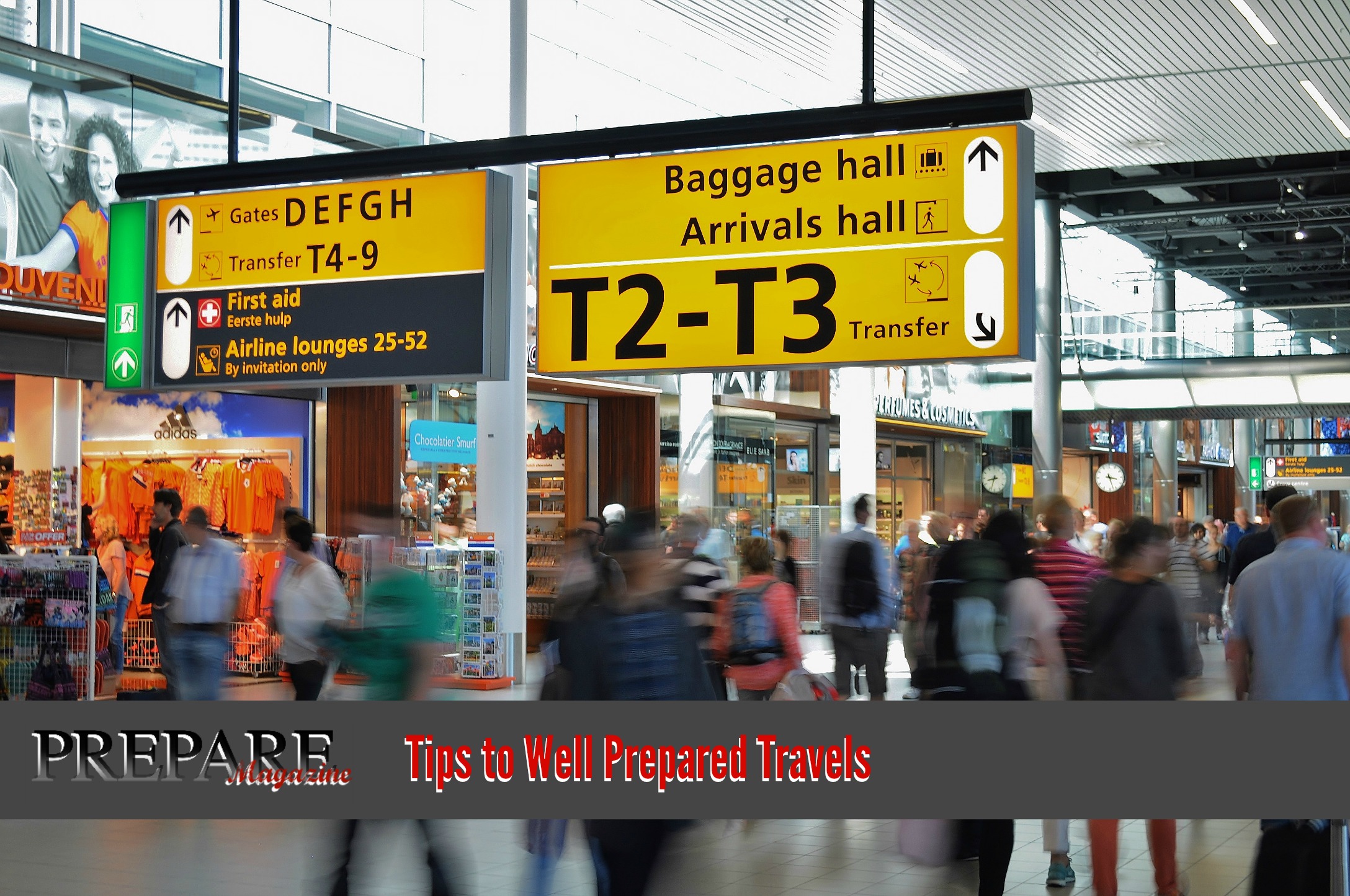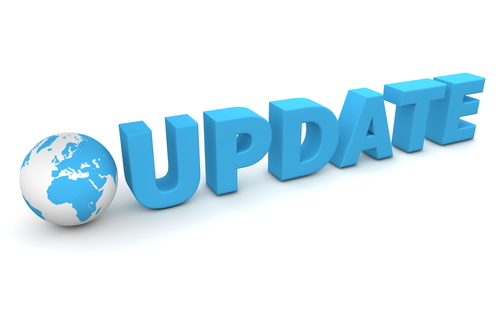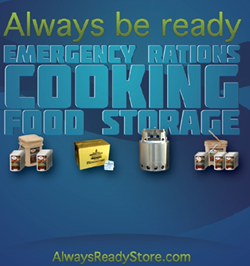Do you have The Preparedness Mindset?
Maybe you’ve had people say something like this to you:
“You just think everybody is out to get you.”
“You’re all a bunch of camo-wearing kooks.”
“My faith will save me, I don’t need to prepare like that.”
 Regardless of where you are on your preparedness journey, you’ve probably heard phrases like these. I’ve had people look at me askance and use phrases like the above, but I don’t hold it against them. Most of the time, their reaction and fear are a product of bad media influences combined with a lack of knowledge about what the “Preparedness Mindset” is.
Regardless of where you are on your preparedness journey, you’ve probably heard phrases like these. I’ve had people look at me askance and use phrases like the above, but I don’t hold it against them. Most of the time, their reaction and fear are a product of bad media influences combined with a lack of knowledge about what the “Preparedness Mindset” is.
Just what do I mean by “Preparedness Mindset”? I mean the attitude towards preparation, in its most elemental form, towards any situation that might occur. There are certain ways in which everyone, or nearly everyone, prepares. Fire safety is a great example. I don’t know the last time I was in a building or home which didn’t have a smoke-detector installed. You also see fire extinguishers prominently located and plainly marked in public buildings. By having a fire extinguisher or smoke detector, no one is saying “This building is definitely going to burn down” but they are acknowledging that there is at least the chance that it could, and should it catch fire, that the occupants will have a better chance of survival than they would have without it. In fact, this preparedness mindset towards fire is such that states and municipalities have fire codes for buildings and would charge the owners with negligence if they disobeyed those mandated preparations. There are other good examples: seat belts/airbags in cars, guard rails on curvy roads, and putting down drop-cloths while painting a room; all of these things are merely an acknowledgement that “bad things could happen” and we want to eliminate or mitigate the severity of those bad things when they do happen. We don’t want to put our head in the sand and ignore what might happen just because it sounds unpleasant.
In our family, our view on preparedness as a mindset is just really nothing more than taking that attitude and purposefully applying it to every situation in our lives. When we see a situation where there could be a problem if something unexpected happens, we put safeguards around it by planning and figuring out alternatives. The specific safeguards and the degree to which we institute them for ourselves is up to our own budget, knowledge, and understanding of the problem, but ultimately, the underlying reason we prepare is because we live in a sinful, broken world.
Speaking of this sinful, broken world, where does faith fit into our preparedness? Psalm 20:7 says, “Some trust in chariots, and some in horses: but we will remember the name of the LORD our God.” We believe that our help comes from the Lord, first and foremost. But at the same time, we know that we live in this world, not unlike Esther or Joshua, who called upon God and called upon their people to take action along with them. Likewise, we do not sit idly by, but we take steps forward as we trust God to supply all our needs. The reality is that faith & preparation are not on opposite ends of the spectrum. You would not make it a policy to ride in your car without seat-belts or airbags, and expect your faith to prevent injury in an accident. Faith does not so much stop bad things from happening as it does give us courage, resolve, hope, and answers when those things happen.
The “Preparedness Mindset” is that purposefulness, and overarching principle, which we use in our day-to-day lives to reinforce the knowledge and skills we are preparing with. When I am acting as a firearms and self-defense instructor, I teach and reiterate many times, “Your mind is your primary weapon”. When I train in Krav Maga, it is quite clear that an unarmed man with an unbreakable drive to live is vastly better prepared when pitted against an armed man who is unable or unwilling to use his weapon. That’s where it all has to start from: in the mind. It’s a decision to be made, “I will be prepared!” And just like a professional athlete, the more you exercise that mindset, the more natural it becomes to use it. It is continuously developed, sharpened, and broadened with every repetition.
Exactly how do we gain that mindset, what are these repetitions? One way to develop this mindset is to routinely, regularly cycle through the things you do, and needs you would face under any number of emergency scenarios. When you get up in the morning, you have a certain “ritual” you go through to get yourself ready for the day. Whatever your “ritual” is, as you get yourself together for the day, ask yourself, “How would this change if I had no heat? No running water? No electricity? Or if there was some natural disaster or terrorist event occurring?” and then follow it with “Would what I am doing be necessary or expected?” Run through this exercise for everything you do in a day. Taking a shower, checking email/social media, watering the garden, making dinner, the work you do, how would any of this be affected by these circumstances? Make a list of everything you do each hour, each day, for a week. Run through your list of activities. How many of these would be immediately eliminated by a loss of power (checking email/social media) and how many could just be done differently by using other sources of power besides what you currently use(cooking dinner)? Now apply these questions and scenarios across the board, to every event in life, to everything you do. Come up with more questions of your own and scenarios you could think of.
But also be on guard against falling into the trap of “I’m prepared for X situation.” Fill in the X with whatever you want, be it a home invasion, loss of power, flood, famine, anything. You don’t know what you may encounter or when, so make your preparations applicable across a wide variety of situations. Think it through, plan it, and then (for most people the hardest of all) DO IT. Be a man or woman of action. Buy the item and store it properly, take the survival training class you need, read the preparedness materials to fuel your learning. Whatever it is, DO IT. There are far too many people who are quite comfortable to talk about being prepared, but have no more than tonight’s meal in the pantry.
Preparedness is a journey on a continuum. It is not a list of supplies, or a list of skills, or a destination of its own. Just like exercise, the first time you do it, it may be feeble and awkward. You may end up sore the next day. But the next time you take steps towards preparedness, you build upon your mistakes from before. As you make mistakes, or as you have successes along the way, you will be making your journey with knowledge that you are picking up as you go, and then when you need to put that preparedness into practice, you again will be doing it with the knowledge that you have done it before.
By Tom Kunz
[wpgfxm_divider divider_image=”css”]
Tom Kunz has been prepping all his adult life, long before it was popular to do so. He is married to the most wonderful woman on earth, and is a homeschooling father of 8, IT security specialist, software developer, mechanical engineer, firearms instructor, conference speaker, pianist, and composer. He specializes in providing security and communications services & support to Christians and missions agencies that work in countries which censor the internet and are openly hostile to the Gospel. His website is: http://SolidRockTechnologies.com/

